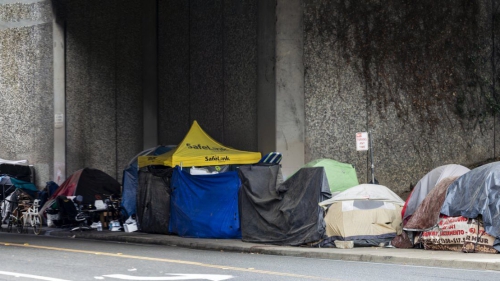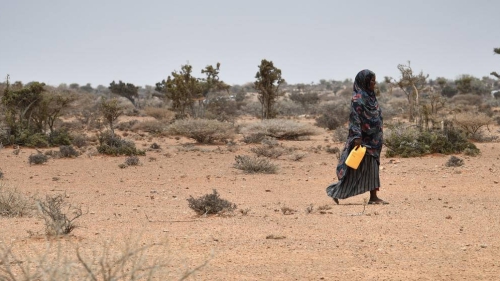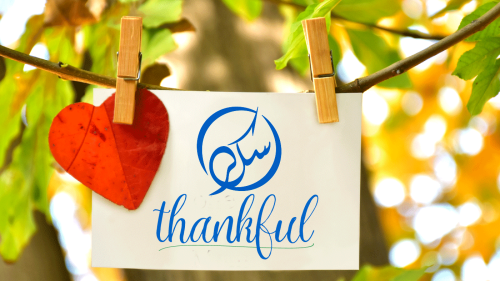Rocking the Cradle of Poverty
"My son is lying now
in the cradle of hunger.
The blood of an onion
is what he lives on."
This is part of what the early 20th century Spanish poet Miguel Hernandez wrote after hearing from his wife that she had only bread and onions to eat. Since his time during the Great Depression, humanity has produced a lot more than mere bread and onions. Yet, in this world of plenty, the advantaged continue to rock the poor into sleep.
At the dawn of the 21st century, we have really a "brave new world"--a world of the speediest-ever mass production and mass consumption, affluence, and ever-expanding opportunities for innovations, production, and trade. It is a world in which worldwide markets provide for lavish transaction of consumer goods and services year-round, 24 hours a day, seven days a week.
The issue is less of scarcity and more of availability; less of production and more of sharing consumption. As abstracted below, the UNDP's Human Development Reports published annually since 1990 provide amply justify this observation.
In 1997, one fifth of the world's people living in the richest countries had 86% of the world's GDP, 82% of its export markets, 74% of its telephone lines, and 68% of its foreign direct investment. In contrast, the fifth of humanity living in the poorest countries had only 1% of the world's GDP, 1% of its export markets, 1.5% of its telephone lines, and 1% of direct foreign investment. The assets of top three billionaires exceeded (and still exceed) the combined GNP of all the 48 least developed countries.
The income gap between the richest fifth of humanity and the poorest fifth was 74 to 1 in 1997, up from 60 to 1 in 1990, and 30 to 1 in 1960. As a result, the poorest fifth of the world's people have been denied a part in the global consumption explosion that occurred in the 20th century. The world's private and public consumption expenses boomed to $24 trillion in 1998, twice the level of 1975 and six times that of 1950. In 1900, the estimated real consumption expenditure was $1.5 trillion. Roughly, half of the 4.4 billion developing world people lack adequate food, basic sanitation, access to clean water, and modern health services.
According to UN Food and Agriculture Organization's report, The State of Food and Agriculture released in November 26, 1998, the number of undernourished people in the world has increased since the early 1990s, mainly because there has been little progress in reducing poverty. The report noted the rise in the number of hungry people, despite significant reductions in hunger and malnutrition in several developing regions.
These indices of growing poverty show that the past 50 years of foreign aid and international development programs have been largely ineffective. These programs sugared over an unbridled global economy that serves the interests of those who have mustered the means to survive as the fittest. They discouraged the poor from deriving positive energy out of poverty to achieve self-reliance, e.g., by imposing "not-to-exceed" production quotas for countries with high productivity potential in order to qualify for foreign aid.
Adding fuel to the fire has been the ubiquitous corruption virus in countries where poverty abounds. According to Johan Galtung's structural theory of imperialism, the powers that be in those "periphery" lands cooperate with the elite in the "center" countries to exploit the have-nots and maintain the center elites' hegemony.
In essence, all the international foreign aid brokers and their accomplices in the developing countries continue to rock the poor into sleep, singing the ironic "Lullaby of for the Hungry" that the early 20th century Iraqi poet Muhammad Mahdi Mahdi al-Jawahiri wrote in agony:
Sleep, You hungry people, sleep! . . . .
Sleep to the echo of long speechifyings
By great and eminent power politicians.
Sleep, You hungry people sleep!
For sleep is one of the blessings of peace.
It is stupid for you to rise,
Sowing discord where harmony reigns.
Sleep, for the reform of corruption
Simply consists in your sleeping on . . . .
Sleep, for the yards of jail houses
Are all teeming with violent death,
And you are the more in need of rest
After the harshness of oppression.
Sleep, and the leaders will find ease
From a sickness that has no cure. . . .
To reverse the status quo, and to reverse the vicious cycle of poverty worldwide, we need another kind of "rocking" on the cradle of poverty. The 13th century poet Jalauddin Rumi's words in the poem "Cry out in your wilderness" suggest a direction for this kind of rocking:
A courageous man went and rescued the bear.
There are such helpers in the world, who rush to save
Anyone who cries out. Like Mercy itself,
They run toward the screaming.
Rocking of this type must transcend the efforts of apolitical poverty scholars, NGOs, micro credit forums, charity institutions, and the World Bank, who have thus far failed to "rescue" the poor worldwide. This rocking must wake up the poor and make them scream out loud. It should emerge as courageous political movements worldwide led by those who genuinely identify with or represent the poor.
Mohammad A. Auwal is an assistant professor in the Department of Communication Studies at California State University, Los Angeles and is a regular columnist for iviews.com

















